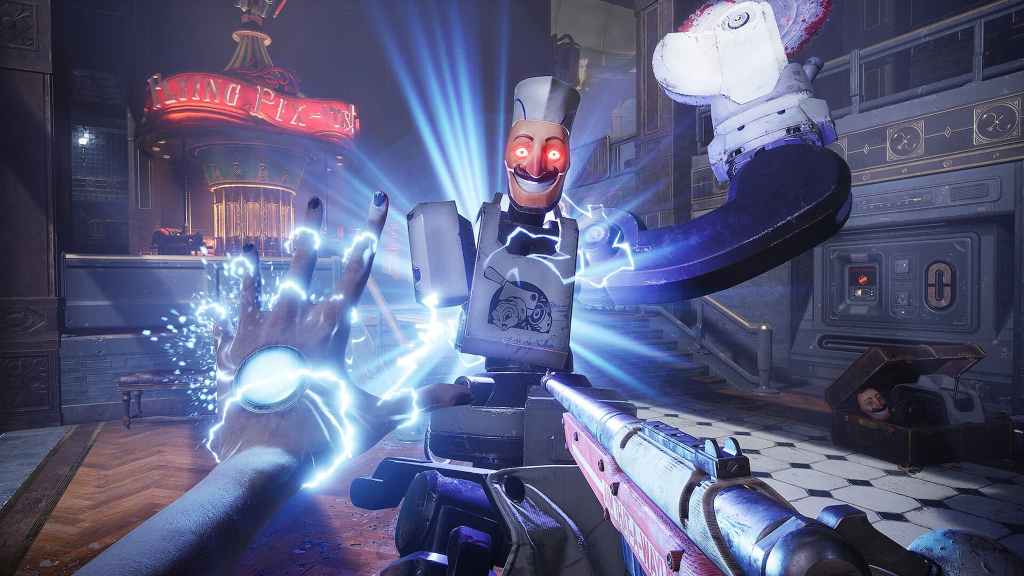Ken Levine is a name that needs no introduction, having been a lead writer for the BioShock series. While Levine may have left the studio responsible for BioShock and its sequels behind, he hasn’t left the game industry. Instead, he’s formed a new studio called Ghost Story Games and it has already revealed its first title, Judas. Levine and Ghost Story Games gave a tease and two trailers showing some of the story and gameplay, fans are left mostly in the dark as to what they can expect, especially about a release date. One thing is for certain though, Levine wants to push the boundaries of what’s possible narratively.
Videos by ComicBook.com
Ken Levine sat down for an interview with GamesIndustry.biz and gave a lengthy talk about Judas and the video game industry’s treatment of narrative design and player choice. For Levine, a game should be player-driven and react to the decisions they make throughout the game. He goes further to say, “The approach we’re taking with Judas is heavily based upon recognition of player action and response to player action.”
RELATED: BioShock Is Now Completely Free to Own For Good
With such a system, Judas would give the player much more control over the story, including the pace and outcome. Ghost Story Games is also trying to cut out cutscenes to give players more agency. All in all, Judas wants to give players a story to follow with various beats but still allow them to make their choices and influence the story as they go.
What makes this difficult and is one of the reasons for Judas‘ lengthy development time is trying to figure out everything a player can do, determining how non-player characters will react, and then programming these. Even the smallest action would have a large branching path of responses. According to Levine, “It’s a complicated problem and I don’t think there’s any one way to solve it.”
Another challenge for Judas is its end-of-the-world narrative, or rather in this case, the destruction of the ship players find themselves on. About this, Levine says, “So we think about it all the time because anything you’re going to be doing, if it’s not about getting off the ship, the big question that will come up is ‘Why am I doing this?’ and you [risk] the player losing faith in the story you’re telling.”
Almost every player has accepted a supposed time-sensitized quest, only to wander around the game world, looting items and completing other quests instead. This sense of urgency Judas is trying to instill seems to run against this natural playstyle, and this is a roadblock Levine is facing, but one he and his team are willing to overcome.

In the interview, generative AI is brought up as a possible solution, but Levine dismisses the idea.
“One limitation AI seems to have is persistence,” he said. “You look at Sora, the ChatGPT video generator, you see a woman walking down the street and the street scene is beautiful – but if she were to turn around and walk backwards, it wouldn’t remember where she has been. It doesn’t currently understand persistence.”
Levine said AI helps work on bugs and analytical aspects, but nothing regarding concept art, story, or elements directly related to game development.
With this mindset, it’s clear human minds are working on making Judas’ narrative and gameplay the best they can be. Levine cites many titles, such as Inside, for their storytelling prowess and wants to invoke a similar feel in Judas. Combining strong narrative choices with an open-ended and perhaps hidden story may be a challenge, but Ghost Story Games is determined to make it possible with Judas.








